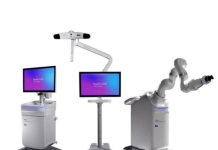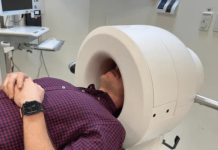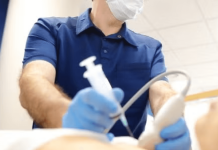Seeing double may often be a sign of a larger health issue, but, in this case, it could be the key to reversing chronic diseases like diabetes.
Mountain View, California-based startup Twin Health has developed technology that creates a “digital twin” modeling a patient’s individual metabolism. The model can then be used to predict how making changes to nutrition, sleep, activity and breathing could potentially reverse or prevent chronic metabolic diseases.
Clinical studies of the Whole Body Digital Twin technology have been resoundingly positive—so positive, in fact, that they’ve helped Twin Health rack up millions of new funding from a handful of investors.
The company recently closed its series C funding with an additional $140 million in the bank. The financing came from ICONIQ Growth, Sequoia Capital India, Perceptive Advisors, Corner Ventures, LTS Investments, Helena and Sofina. It’ll be used to continue developing Twin Health’s technology and scaling up its reach both across new disease areas and to more patients.
The system constructs and constantly updates each digital twin based on thousands of data points continuously gathered from wearable devices like fitness trackers and glucose monitors, regular blood tests and self-reported symptoms.
Twin Health’s predictive artificial intelligence analyzes each version of the model to understand how ongoing lifestyle changes are impacting a patient’s health and suggest new tweaks that could speed up those improvements and reverse the effects of long-term metabolic conditions, which they can review via Twin Health’s app. The program also gives healthcare providers reports about collected biomarkers and recommendations for reducing medications as a patient’s health improves.
An ongoing clinical trial is measuring how the program’s suggestions can affect Type 2 diabetes patients’ blood sugar levels, liver function, weight and more. Early results of the randomized, controlled trial published in June show that, of the patients in the digital twin group, more than 90% experienced at least partial reversal of their diabetes, indicated by a drop in blood sugar levels to an HbA1c below 6.5, compared to their baseline average of 8.7.
They also registered an average weight reduction of about 20 pounds and significant improvements in liver function, and 92% of those on insulin or other diabetes medications were able to completely eliminate those regimens. Meanwhile, none of the members of the control group achieved diabetes reversal, reduced their diabetes medications or significantly improved their weight or liver function.
Currently, access to the Whole Body Digital Twin program comes only through Twin Health’s partnerships with health insurance and employee benefit plans.
Digital twin technology is becoming an increasingly popular tool for health management, surgical planning and drug development. In the latter category, AI-powered drug designer XtalPi recently closed its own series C round, totaling $318.8 million, with plans to develop a new digital twin simulation system. The predictive modeling system will help biopharma companies bring into clinical trials only the new drug compounds shown to have the greatest potential efficacy.
And last spring, freshly launched startup Q Bio unveiled its own digital twin platform, which uses an automated, radiation-free scanner to generate imaging data from the entire body within 15 minutes, then combine that with genetic information, medical records and other test results to construct a digital twin.
Are you hiring?
Submit Vacancy




